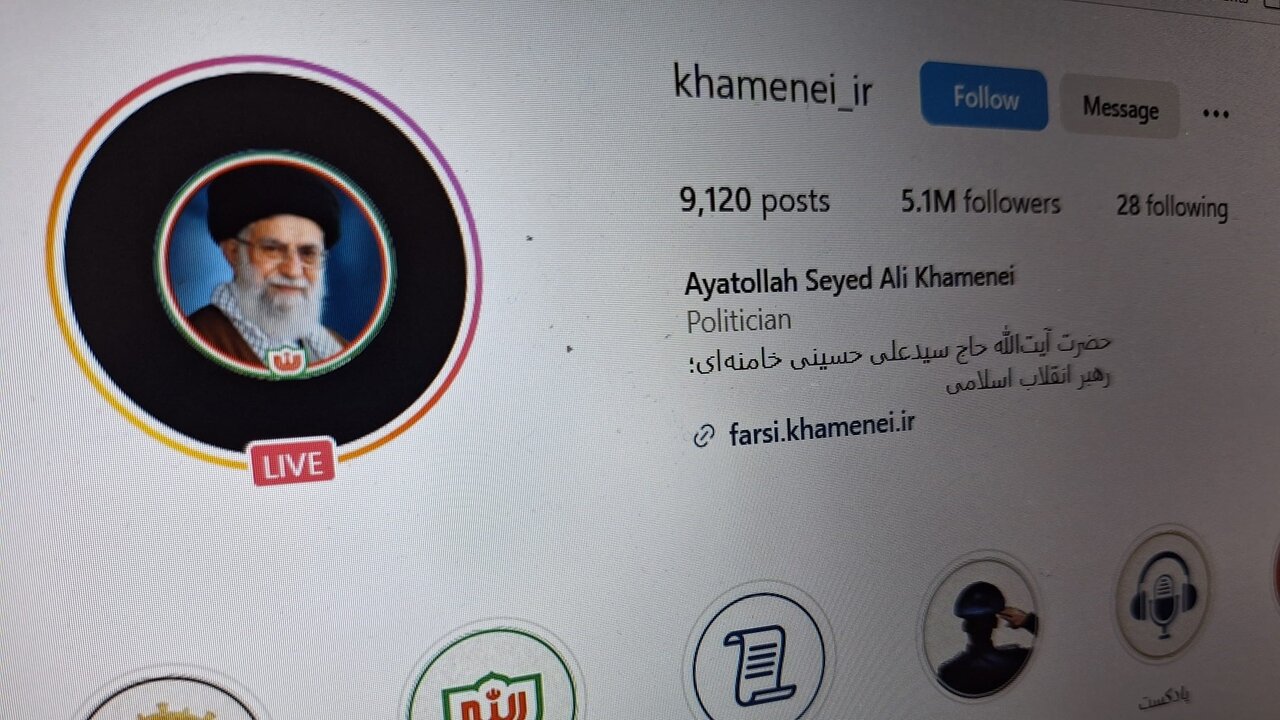Instagram confronts protests over shutdown of pages linked to Ayatollah Khamenei's website

TEHRAN- The website of Leader of the Islamic Revolution Ayatollah Seyed Ali Khamenei has criticized Instagram’s restriction of pages linked to the website on the social media platform.
Khamenei.ir, the Leader’s official website, announced the demonstration in a post on X, on Tuesday.
“Based on media reports, Instagram has blocked certain pages associated with Ayatollah Khamenei's website because of the support for the oppressed people of Palestine,” the post read.
It added, “Khamenei.ir has protested against the move, calling on Instagram to respect professional standards.”
On February 8, Meta Platforms, Inc., the American firm that manages and owns Instagram, deactivated Ayatollah Khamenei’s Persian and English language accounts.
The action occurred after months of relentless lobbying by pro-Israeli groups, who are notorious for holding enormous power in the United States.
Meta has been removing pro-Palestinian data from Instagram and Facebook, which are both controlled by the company, since October 7, 2023, when the Israeli regime launched a murderous attack on the Gaza Strip.
The takedown occurred on the same day that the Leader declared that the ongoing terrible happenings in the Gaza Strip were a disaster for the Muslim world and all of mankind.
In 2023, the Instagram account KHAMENEI.IR ranked among the top 10 accounts of world leaders. Remarkably, posts on his Farsi-language account garnered over one hundred million views in the past three months.
This account, active for twelve years, boasts a staggering nine thousand posts that received eighteen million comments.
Formerly known as Facebook, Meta now owns a quartet of platforms: Instagram, WhatsApp, Facebook, and Facebook Messenger.
Headquartered in Menlo Park, California, Meta provided a scant explanation for its actions, citing violations of its Dangerous Organizations and Individuals policy as justification for the account removals.
The incident highlights the delicate balance between freedom of speech and the enforcement of platform policies, particularly concerning influential figures like Ayatollah Khamenei.
While Meta's subsidiary platforms profess to foster an environment of free expression and diversity of opinion, their practices often align closely with U.S. laws and policies, potentially stifling dissenting voices that challenge mainstream narratives.
The removal of Ayatollah Khamenei's accounts signals two significant realities.
Firstly, it casts doubt on Western claims of upholding freedom of expression, revealing a willingness to silence expressive and influential voices without hesitation.
Secondly, it exposes a broader pattern of support for the Israeli regime, which has faced widespread condemnation for its violent actions against Palestinians.
Meta's actions are just one facet of a larger trend of political and media support for Israel, highlighting the West's willingness to sacrifice principles for geopolitical alliances.
As such, it prompts a broader discussion about the power dynamics inherent in digital platforms and their impact on global conversations surrounding geopolitics and social justice.
Mark Zuckerberg, the CEO of Facebook, has long displayed a pro-Israeli stance, a position that has come under increased scrutiny, especially in light of the recent Israeli aggression and onslaught in Gaza.
Leave a Comment